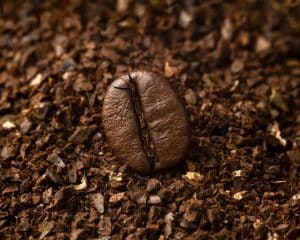A Cup Of Joe Meaning: Brewing Curiosity
 Table Of Contents
Table Of ContentsCoffee, often called joe, has become an integral part of daily life for many people. With its rich history and wide popularity, it’s no surprise that there are various slang terms used to describe this beloved beverage. From “cup of joe” to “brain juice” to “jet fuel” to “liquid energy,” these colorful phrases reflect the strong and invigorating qualities that coffee is known for.
One term stands out among the caffeinated lexicon: a cup of Joe. This familiar expression is woven into everyday conversation, providing a quick and catchy way to order, discuss, or simply savor a steaming mug of coffee. But have you ever pondered the origins and true meaning behind a cup of Joe?
Definition Of A Cup of Joe
The phrase cup of Joe is a colloquial and informal term for a serving of coffee. It’s commonly used in casual conversation and refers to a cup of coffee in everyday language. While we do not know precisely where the term arose there are a few leading theories.
Why Is Coffee Called a Cup of Joe?: Sipping On A Few Theories
Your Average Joe
During World War I, the U.S. Navy faced the challenge of providing its sailors with a hot and energizing beverage. Coffee quickly became the beverage of choice, as it was practical and efficient to serve on board naval vessels. Coffee not only helped to keep the sailors awake during long shifts but also provided some warmth and comfort in the often harsh conditions at sea.
The name Joe in the phrase a cup of Joe likely derives from its colloquial use as a generic or common name for an average person. This usage can be traced back to the late 19th and early 20th centuries. A similar term, Holy Joe, was used to denote a chaplain or religious leader, frequently within the military or naval environment.
When sailors were served coffee, it became known as a cup of Joe, emphasizing that it was a standard, everyday drink for the average sailor.
The term a cup of Joe carries a hint of irony. Sailors, renowned for their humor and inclination for clever language, may have playfully coined the phrase with a touch of sarcasm. It’s almost like they were quipping: here’s your plain and simple black coffee, just as any Joe would prefer. This expression probably developed among naval circles before gaining popularity among the general public.
Josephus Daniels Theory
Josephus Daniels was appointed Secretary of the Navy in 1913, and during his tenure, he implemented a series of significant reforms in the U.S. Navy. One of the most well known reforms was his decision to ban the consumption of alcohol on naval ships. This prohibition was part of a broader effort to improve discipline and morale among sailors.
With the ban on alcohol, coffee quickly became the beverage of choice for sailors on U.S. Navy ships. Coffee was practical to serve on board ships and helped keep sailors alert during their duties. As a result, coffee gained popularity as the go to drink in the Navy.
According to this theory, the phrase a cup of Joe emerged as a humorous or ironic reference to Josephus Daniels himself. Sailors, known for their penchant for nicknames and wordplay, playfully associated the Secretary of the Navy with the beverage that had become so integral to their daily lives. By calling coffee a cup of Joe, they may have been highlighting the fact that under Daniels’ leadership, coffee had become the dominant drink in the Navy. The term likely began within naval circles but eventually made its way into civilian slang.
The Legacy Of Joe Martinson Coffee
Joe Martinson founded Martinson Coffee in 1898 in New York City. The brand gained popularity for its quality coffee beans and blends, becoming one of the prominent coffee companies in the United States. Martinson Coffee was known for its commitment to delivering consumers a consistently good morning cup of coffee.
According to this theory, the phrase a cup of Joe may have emerged as a casual way to refer to coffee due to the widespread recognition of the Martinson Coffee brand. People might have begun using a cup of Joe to denote any morning cup of coffee, much like saying a Coke to refer to any carbonated soft drink, regardless of brand.
Java And Mocha: Slang Fusion
Some language experts suggest that the term Joe may have roots in two other coffee related words: Java and Mocha. During the 1930s, Jamoke was a popular slang term for coffee, blending the terms mocha, denoting a type of coffee, and java, which referred to coffee in general. This combination, Jamoke, captured the essence of the coffee culture of that era.
Linguists propose that over time, the term Jamoke might have been shortened to simply Joe. This process of abbreviation is common in the evolution of slang terms, as words are often simplified or clipped for convenience and ease of use. Today, coffee enthusiasts still encounter the terms mocha and java, which are reminiscent of this historical coffee jargon.
Random Coincidence For A Common Man’s Drink
Language constantly evolves, and idiomatic expressions often arise spontaneously within a community or culture. In the case of a cup of Joe, it is possible that the phrase naturally emerged as people sought a colloquial and familiar way to refer to a cup of coffee.
People often use familiar, everyday names and terms to create new expressions. Given that Joe is a common first name, it’s not unusual for it to be used in this way. In fact, Joe refers to an average or ordinary person, much like other similar expressions in English, where generic names represent everyday items or actions. For example, John Doe is used to refer to an unidentified person, and Joe Blow is used to refer to an average or ordinary person.
Many idiomatic expressions have obscure or unpredictable origins because they often arise from informal and spontaneous language use. Such phrases may not have a well documented history or a single, identifiable source. Instead, they gain popularity over time through usage within a community or culture.
The Random Coincidence theory suggests that a cup of Joe could have simply gained traction through its ease of use and widespread acceptance. It may have been coined independently by different people in different contexts until it became a recognized and common way to refer to a cup of coffee.
Regardless of its murky origins, a cup of Joe has achieved widespread recognition and acceptance in American English. It’s an easily understood phrase and is commonly used to refer to a cup of coffee. Over time, it has become a part of everyday language, and its meaning is widely known and accepted by English speakers. Next time you make coffee you can ponder the derivations of your cup of Joe.
Alex is a web developer, writer, and marketer. He has degrees in English, Computer Science, and Mathematics and is always learning as much as he can. Alex operates a series of websites for both client and personal use. Alex usually starts the day with shot of espresso or an Americano and then follows up with a Cafe Au Lait with lunch. He enjoys trying new coffee beans and finding new ways to prepare it, but most days prefers to keep things simple.





